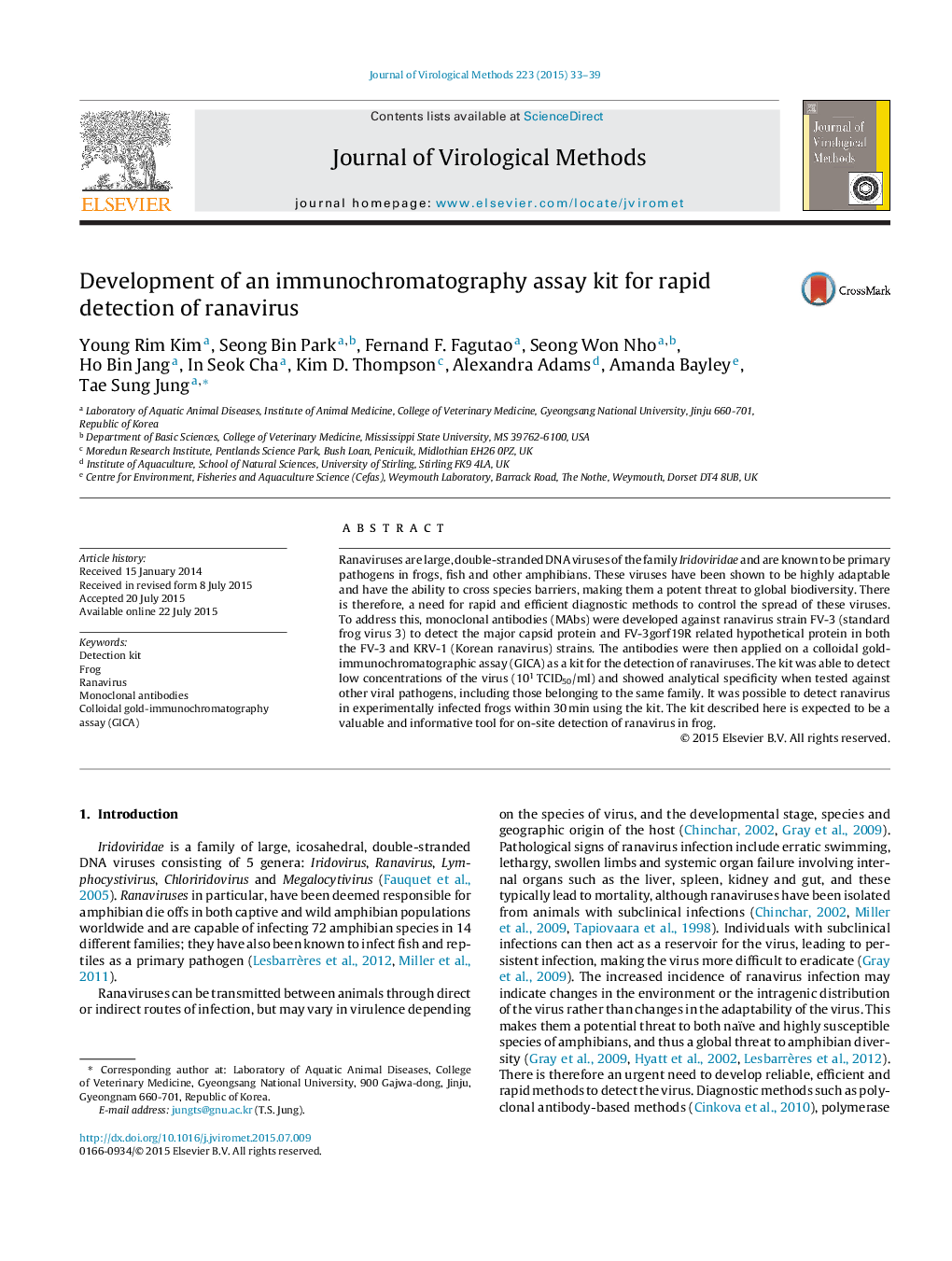| Article ID | Journal | Published Year | Pages | File Type |
|---|---|---|---|---|
| 6133103 | Journal of Virological Methods | 2015 | 7 Pages |
Abstract
Ranaviruses are large, double-stranded DNA viruses of the family Iridoviridae and are known to be primary pathogens in frogs, fish and other amphibians. These viruses have been shown to be highly adaptable and have the ability to cross species barriers, making them a potent threat to global biodiversity. There is therefore, a need for rapid and efficient diagnostic methods to control the spread of these viruses. To address this, monoclonal antibodies (MAbs) were developed against ranavirus strain FV-3 (standard frog virus 3) to detect the major capsid protein and FV-3gorf19R related hypothetical protein in both the FV-3 and KRV-1 (Korean ranavirus) strains. The antibodies were then applied on a colloidal gold-immunochromatographic assay (GICA) as a kit for the detection of ranaviruses. The kit was able to detect low concentrations of the virus (101Â TCID50/ml) and showed analytical specificity when tested against other viral pathogens, including those belonging to the same family. It was possible to detect ranavirus in experimentally infected frogs within 30Â min using the kit. The kit described here is expected to be a valuable and informative tool for on-site detection of ranavirus in frog.
Keywords
Related Topics
Life Sciences
Immunology and Microbiology
Virology
Authors
Young Rim Kim, Seong Bin Park, Fernand F. Fagutao, Seong Won Nho, Ho Bin Jang, In Seok Cha, Kim D. Thompson, Alexandra Adams, Amanda Bayley, Tae Sung Jung,
